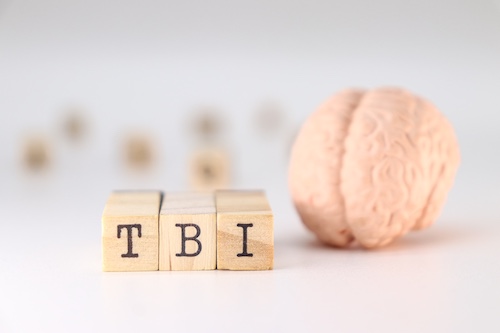Traumatic Brain Injury from Car Accident: What Georgia Victims Need to Know
A traumatic brain injury from a car accident can change a life in seconds. The damage may not be visible, but the effects can be permanent. From mild concussions to severe brain damage, these injuries often require ongoing care, high medical costs, and time away from work. In Georgia, victims have legal rights and options to recover compensation. Understanding the symptoms, treatment, and legal steps is critical after a crash.
In this blog, you’ll learn the signs of a traumatic brain injury from a car accident, your legal rights in Georgia, and how an Atlanta car accident lawyer can help.
Understanding Traumatic Brain Injury (TBI)
A traumatic brain injury from a car accident can cause lasting damage to the brain, affecting physical, emotional, and mental health.
What Is a Traumatic Brain Injury?
A traumatic brain injury (TBI) occurs when sudden trauma disrupts normal brain function. This trauma often results from a blow or jolt to the head during a car crash.
The force of the impact can damage brain tissue, nerve fibers, and blood vessels. TBIs range in severity from mild to severe. Mild TBIs, such as concussions, may cause brief changes in mental state. Severe traumatic brain injuries can lead to loss of consciousness, brain death, or permanent brain damage.
Types of Traumatic Brain Injuries Caused by Car Accidents
Motor vehicle crashes can cause several types of TBIs. A closed head injury occurs when the brain is injured without a break in the skull. A penetrating TBI happens when an object enters the skull and damages brain tissue.
A diffuse axonal injury is caused by sudden deceleration, which stretches and tears nerve fibers in the brain. Blunt TBIs can result from hitting the dashboard or steering wheel. Skull fractures may also occur, increasing the risk of brain damage or fluid buildup.
Mild, Moderate, and Severe TBI
TBIs are categorized by severity. A mild TBI may cause symptoms like headaches, mood swings, or difficulty concentrating. These symptoms often last a few weeks and may not be immediately noticeable.
A moderate TBI can lead to longer periods of confusion or unconsciousness. A severe TBI may result in coma, a minimally conscious state, or brain death. Immediate medical attention is critical to diagnose TBI and prevent worsening symptoms.
Common Symptoms of a Traumatic Brain Injury
Symptoms vary depending on the type and severity of the injury. Common signs include a persistent headache, slurred speech, dizziness, memory problems, and sensitivity to light.
In more serious cases, victims may show signs of post-traumatic amnesia, changes in eating or nursing habits, or other unusual behavior. Some symptoms may appear hours or days after the car accident.
How Car Accidents Cause Brain Injuries
Vehicle accidents often involve sudden impact or rapid deceleration. This motion forces the brain to collide with the inside of the skull, causing damage even without a direct blow to the head.
The risk increases when the head strikes a hard surface like a steering wheel or window. Head injuries in car accidents are a major cause of TBIs and can lead to permanent brain damage if not treated promptly.
Common Symptoms of Brain Injuries After a Car Crash
Recognizing the signs of a traumatic brain injury from a car accident can help prevent long-term damage and support timely medical treatment.
Physical Symptoms
Physical signs of a traumatic brain injury include persistent headache, nausea, vomiting, fatigue, and dizziness. Victims may also experience blurred vision, ringing in the ears, or loss of balance.
Some cases involve slurred speech or loss of coordination. These symptoms may appear immediately or develop over the next few hours or days.
Cognitive and Mental Symptoms
Traumatic brain injuries can affect memory, concentration, and decision-making. Victims may struggle to follow conversations, recall recent events, or stay focused on tasks.
In moderate or severe TBI cases, confusion and post-traumatic amnesia can last longer. Difficulty with language or understanding instructions is also common.
Emotional and Behavioral Changes
Mood swings, irritability, and depression often occur after a traumatic brain injury. Some individuals may become unusually aggressive or withdrawn.
Other unusual behavior can include anxiety, nervousness, or a lack of emotional control. These changes may be temporary or indicate lasting brain function damage.
Symptoms in Children
Children may not show the same symptoms as adults. Warning signs include changes in eating or nursing habits, constant crying, or loss of interest in favorite activities.
A child with a head injury may also sleep more than usual, show signs of confusion, or lose previously learned skills. Immediate medical attention is essential in these cases.
Delayed or Worsening Symptoms
Not all symptoms appear right after the car crash. Some signs may take hours or days to develop. These include fluid buildup, blood clots, and increased pressure in the brain.
Worsening symptoms such as repeated vomiting, seizures, or loss of consciousness are medical emergencies. Early diagnosis helps limit long-term complications and permanent brain damage.
Diagnosing and Treating TBI in Georgia
Quick and accurate diagnosis of a traumatic brain injury from a car accident is critical to prevent serious injuries and long term complications.
Initial Medical Evaluation
After a car crash, victims with a suspected head injury should visit an emergency room or healthcare provider immediately. Doctors will ask about the accident, check for common symptoms, and assess brain function.
Medical staff may use tools like the Glasgow Coma Scale to rate the severity of the injury. This helps determine if the TBI is mild, moderate, or severe.
Imaging and Diagnostic Tests
To diagnose TBI, doctors often use imaging tests such as CT scans and MRIs. These scans can reveal skull fractures, bleeding, blood clots, and fluid buildup inside the brain.
In some cases, blood tests are used to detect proteins linked to brain injury. These tests can support early detection and treatment decisions.
Treatment for Mild TBI
A mild TBI, like a concussion, usually requires rest and monitoring. Patients should avoid physical activity, contact sports, and screen exposure until symptoms improve.
Doctors may recommend follow-up visits to check for worsening symptoms or delayed effects. Most mild TBIs improve within a few weeks.
Treatment for Moderate or Severe TBI
Moderate or severe TBIs often need hospital care. Treatment may involve oxygen support, medications to reduce pressure in the skull, and surgery to remove clots or relieve swelling.
Patients with severe TBI may enter a minimally conscious state or coma. Long-term care may include physical therapy, speech therapy, and psychological support.
Ongoing Monitoring and Recovery
Recovery from a traumatic brain injury depends on the severity and location of the damage. Some patients regain normal brain function, while others face lasting challenges.
Doctors monitor for signs of brain death, nerve damage, or permanent brain damage. Rehabilitation plans focus on helping the patient return to daily life safely and independently.
Legal Options for Victims of Traumatic Brain Injuries in Georgia
Victims of a traumatic brain injury from a car accident in Georgia may have the right to seek compensation through a personal injury claim.
Right to Compensation Under Georgia Law
Under Georgia law, individuals injured due to someone else’s negligence can recover damages. This includes those who suffer a traumatic brain injury caused by a car crash. The law recognizes the right to seek compensation for both economic and non-economic losses.
O.C.G.A. § 51-1-6 allows injury victims to hold the at-fault party responsible if their actions caused harm. Proving negligence involves showing that the other party owed a duty of care, breached that duty, and caused the injury.
Damages You May Recover
Victims may recover compensation for medical bills, including emergency room visits, imaging tests, and long-term rehabilitation. In cases involving moderate or severe TBI, damages can include future medical costs and expenses related to permanent brain damage.
Other recoverable damages include lost wages, loss of earning potential, pain and suffering, and emotional distress. In the most serious cases, claims for brain death or lifelong care needs may apply.
Statute of Limitations
Georgia law limits the time to file a personal injury claim. Victims generally have two years from the date of the car accident to take legal action. This time limit is set by O.C.G.A. § 9-3-33.
Failing to file within the deadline may result in losing the right to seek compensation. It is important to act quickly and gather evidence as soon as possible.
The Role of a Car Accident Lawyer
A Georgia car accident attorney helps build a strong case by collecting medical records, police reports, and expert opinions. This is especially important in traumatic brain injury cases where symptoms may not be visible or may worsen over time.
A lawyer can handle communication with insurance companies, calculate damages accurately, and represent the victim in court if needed. Legal representation improves the chances of receiving fair compensation for serious injuries.
Contact an Experienced Atlanta Car Accident Lawyer Today!
If you or someone you love has suffered a traumatic brain injury from a car accident, we’re here to help. At GMV Law Group, we understand the impact these injuries have on your life, and we’re ready to fight for the compensation you deserve.
Contact us at 404-975-4878 for a free case consultation today!







